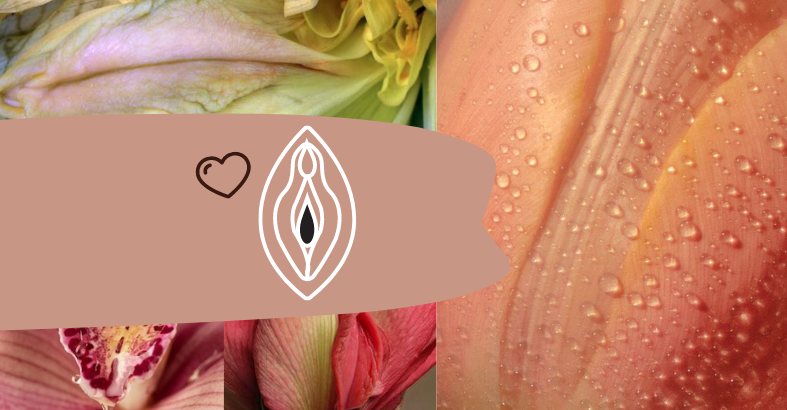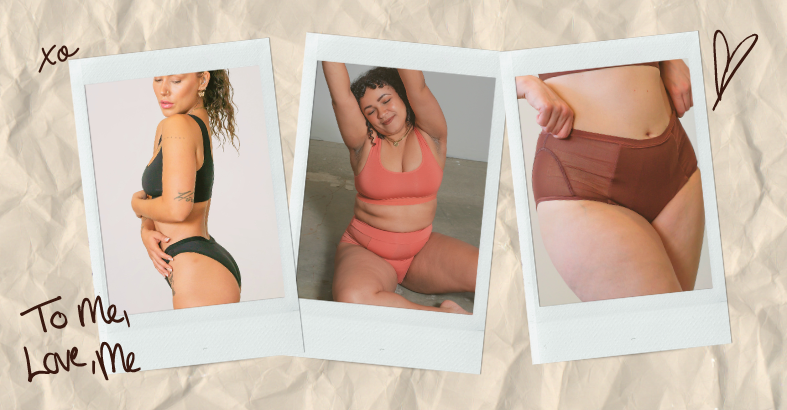Let's talk about your vulva skin! The skin that is more permeable than basically any other part of your body.
First of all, what does "permeable" even mean?
Basically, it means that the skin of the vulva can absorb things more easily than other parts of the body. This can be good news when you're applying soothing creams or ointments to the area, but not so great when it comes to harmful substances.
So, why is the skin of the vulva so absorbent?
It all comes down to the unique anatomy of the area. The vulva is made up of a thin layer of skin that has a higher concentration of blood vessels, sweat glands, and sebaceous glands. This means it can absorb substances from the environment more easily than other areas.
But - here's the not-so-fun part. Recent studies have shown that certain chemicals found in personal care products, such as parabens, phthalates, & more recently PFAS chemicals, can accumulate in the vulvar skin at higher levels than in other tissues of the body. Those chemicals can literally sneak into our bodies and just hang out in our sensitive vulvar skin!
Phthalates have been linked to a range of health problems, including reproductive issues, developmental delays, and even cancer. Parabens, on the other hand, are often used as preservatives in personal care products and can mimic oestrogen in the body, messing with our hormone function. Not cool, parabens!
So, what can you do to protect yourself from these sneaky chemicals? The first step is to be mindful of the products you use on your vulva. Whenever possible, opt for natural or organic products that don't contain harsh chemicals or fragrances.
It's also a good idea to switch up your menstrual products. Mainstream tampons and pads can contain harmful chemicals like dioxins and bleach, which can irritate our sensitive vulvar skin. Consider trying out organic cotton or safe, non-toxic reusable menstrual products (like our undies) to avoid exposure to these nasty substances.
And last but not least, practice good hygiene. While it's important to avoid over-washing the vulva with harsh soaps, keeping the area clean and dry can help prevent infections and irritation. Plus, who doesn't love feeling fresh and clean down there?
In conclusion, let's give our vulvas some love and attention! The permeability of the skin in this area means that we need to be extra cautious about the products we use and the chemicals we expose ourselves to. By making informed choices and taking steps to protect ourselves, we can ensure that our vulvas stay healthy and happy for years to come.
So go ahead, treat your vulva to some natural and gentle products, switch up your menstrual routine, and practice good hygiene. Your vulva will thank you! And remember, taking care of our vulvas doesn't have to be a serious and boring topic. We can make it fun and playful, while still taking care of our health.
References:
- Caporossi, L., Viganò, P., Paci, E., Capanna, S., Alteri, A., Campo, G., Pigini, D., De Rosa, M., Tranfo, G., & Papaleo, B. (2021). Female Reproductive Health and Exposure to Phthalates and Bisphenol A: A Cross Sectional Study. Toxics, 9(11), 299. https://doi.org/10.3390/toxics9110299
- Darbre PD, Harvey PW. (2008). Paraben esters: review of recent studies of endocrine toxicity, absorption, esterase and human exposure, and discussion of potential human health risks. J Appl Toxicol 28(5):561-78.
- Environmental Working Group (EWG). (n.d.). Skin Deep. Retrieved from https://www.ewg.org/skindeep/.





